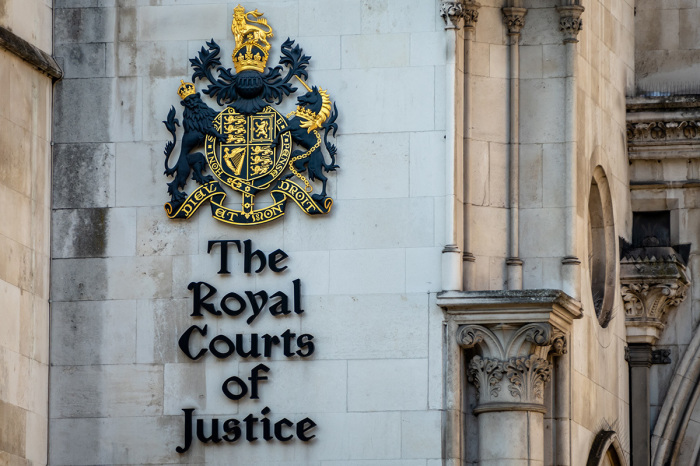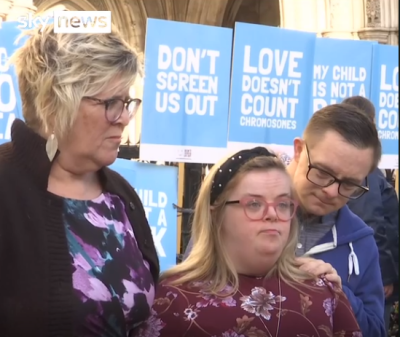Woman loses appeal to stop killing of babies with Down syndrome, cleft-lip or club foot

A woman with Down syndrome has lost her appeal to stop killing babies diagnosed with this condition, cleft lip or club foot in-utero under the disability clause in abortion laws, which she said were discriminatory and stigmatized people with disabilities.
After three senior judges at the Court of Appeal decided the Abortion Act is not discriminatory to people with Down syndrome, the 27-year-old petitioner, Heidi Crowter, said she was “angry that the judges say my feelings do not matter,” the BBC reported Friday.
In England, Wales and Scotland, abortion is legal up to birth if the baby has been diagnosed as having a disability, including Down syndrome.
The judges — Lord Justice Underhill, Lady Justice Thirlwall and Lord Justice Peter Jackson –— said abortion laws were for parliament to decide, according to The Guardian.

Crowter responded to the dismissal of the case by saying, “It makes me feel that I shouldn’t be here. That I should be extinct. I know that’s not true, but that’s how it makes me feel.”
The judges said, “The court recognizes that many people with Down’s syndrome and other disabilities will be upset and offended by the fact that a diagnosis of serious disability during pregnancy is treated by the law as a justification for termination, and that they may regard it as implying that their own lives are of lesser value.
“But it holds that a perception that that is what the law implies is not by itself enough to give rise to an interference with article 8 rights [to private and family life, enshrined in the European convention on human rights].”
Last September, two High Court judges had ruled that the legislation is not unlawful and that it only balances the rights of the unborn child with that of women, The Telegraph reported.
Crowter and the other petitioners had argued that the abortion law violated the European Convention on Human Rights, especially Article 2, which declares that "Everyone's right to life shall be protected by law."
Crowter, who is from Coventry, brought the case alongside Máire Lea-Wilson, whose son, Aidan, also has Down syndrome. She said her family plans to take the case to the Supreme Court. “I will not stop until I am seen as equal in society,” she was quoted as saying.
At the time of taking her case to the High Court in 2020, Crowter told The Telegraph, “The current law is unfair. It makes me feel like I shouldn’t exist, and that I’d be better off dead in the eyes of the law.”
The U.K.’s government-funded NHS uses prenatal testing to find out whether a baby has Down syndrome, said Nicola Enoch, who helps lead Positive about Down syndrome, to The Christian Post in a previous interview. Then, it frames the baby as a disaster for the mother.
“It’s the subliminal messages that we don’t even realize. The tone of the conversation,” she said. “That tone of ‘I’m sorry’ and ‘this baby is to be avoided.’”
Research conducted by Positive about Down syndrome showed that upon receiving news from the NHS that their baby had Down syndrome, 69% of pregnant women were immediately offered an abortion. If they said no, NHS officials would ask them again. And again. One woman was asked 15 times, the BBC reported earlier.




























